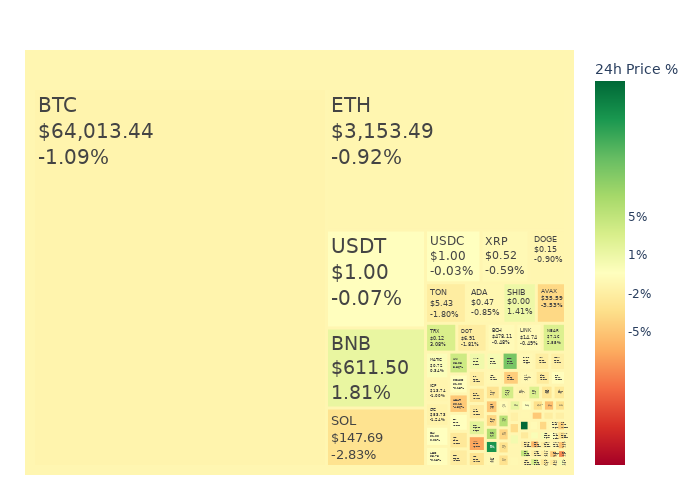Stripe Resumes Crypto Payments After 6 Years
ConsenSys Sues SEC Over Ethereum Regulation, Key L2s To Integrate Avail for Data Availability
Stripe is reintroducing cryptocurrency payments on its giant platform after a 6-year hiatus, starting with USDC on networks Solana, Ethereum, and Polygon.
Stripe initially brought support for Bitcoin in 2014. The company dropped Bitcoin payments in 2018 because of its volatility. In 2022, they tried to reintroduce crypto, but only implemented USDC payouts with Twitter.
This time, the USDC stablecoin was chosen for payments because merchants can accept it with more trust in its efficiency and lack of volatility.
Stripe co-founder John Collison explained their reasoning, saying that transaction settlement speeds have gotten much higher, and fees are much lower.
The resuming of crypto payments is part of a list of other upcoming launches (AI tooling, usage-based billing, big embedded finance), as announced at Stripe’s Sessions developer event on Wednesday.
Market Update
News
ConsenSys Sues SEC Over Ethereum Regulation
ConsenSys' lawsuit against the SEC is rooted in the argument that Ethereum and its applications should not be considered securities. The company contends that the SEC's recent actions, which imply regulatory authority over Ethereum, directly violate the rights of ConsenSys under the Administrative Procedures Act. | Read More
Arbitrum, Optimism, Polygon, StarkWare and zkSync to integrate Avail for Data Availability
The integration of Avail's data availability solution with these layer-2 networks is expected to bring several benefits. Firstly, it will allow for more robust and scalable applications by ensuring that data necessary for transaction validation is readily available and not bottlenecked by the limitations of Layer 1. Secondly, it enhances the security and reliability of these networks by providing a more decentralized and tamper-proof system of data storage and access. | Read More
Solana Mobile ‘Chapter 2’ Airdrops Briefly Exceed Pre-order Price
Individuals who pre-ordered the Solana 'Chapter 2' mobile phone experienced a surprising financial gain shortly after their purchase. The phone, priced at $450, came with an additional perk: airdrops of various memecoins directly to the holders' wallets. Memecoins such as MEW and MANEKI, among others, were distributed to these early adopters. | Read More
Movement Labs Raises $38M To Build New Chain With Facebook's Move Language
By integrating the Move programming language into the Ethereum network through Movement L2, Movement Labs aims to address some of the scalability and security issues associated with Ethereum's current architecture. The Move Virtual Machine, which is the execution environment for Move, promises to improve transaction speeds and security. | Read More



